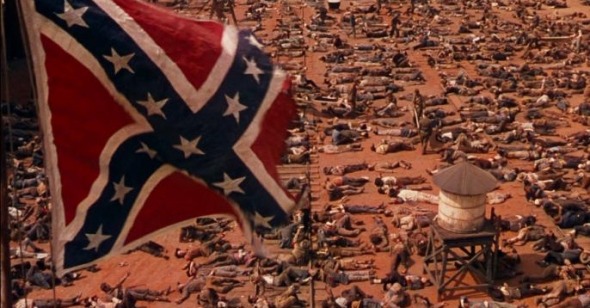
Over at her own website, Sarah Hoyt explains the H-1B kerfuffle (for Americans and foreigners alike).
I keep giggling when the media — even some on the right — refers to the lively… discussion last week about the appropriate use of H1B visas and when to import workers as “A MAGA civil war.”
… This wasn’t a civil war. This was barely a family argument.
Let me unpack it for you: Of course Musk and Trump had a prejudice pro H1B visas. The first came here with one, and he and the second see only the results after they’ve been normalized, tamped, cleared and made rational by their middle managers.
… So, of course, Trump and Elon stepped in it, after Vivek really stepped in it by thinking America is how Hollywood portrays it.
But Elon and Trump have walked it back, and I really think they mean it.
… The point is, as much as I’m sure Vivek didn’t know what he was stepping into, this argument is one that needed to be had. The pros and cons, and the justifiable anger of the people should be on open display.
… American citizens are tax payers. They are also members of the culture, born and raised in it. If their buy in doesn’t get them at least equal consideration for work and the benefits of an economy they and their parents helped build, it’s on you to explain why not. America should be run for the benefit of Americans (of all colors.) I’m not suggesting we slam the gates shut. I’m suggesting small, a trickle really, and for very specific needs and circumstances …
… In healthy families, nations and movements, things get discussed in the open without fear it will destroy everything.
And yes, the dems will think it’s a civil war and that we’re “falling apart” but that’s because they don’t tolerate dissent or even questioning, and frankly any questioning would cause them to fall apart, because they have no coherent philosophy.
Ignore them. The adults need to work through this stuff.
Read the whole thing.
The only time that this blog wrote about the H-1B law in its 20 years of existence was during the Obama administration, when a news report in the New York Times in June 2015 made me particularly furious (the fact that it was the Disney Corporation made me angrier still) and particularly willing to write a post dripping with icy sarcasm.
As you read the following post (plus the NYT article) from 10 years ago, remember this sentence: "If their buy in [and culture] doesn’t get them at least equal consideration for work and the benefits of an economy [that American citizens] and their parents helped build, it’s on you to explain why not."
The Wondrous Benefits of Our Forward-Looking Leaders' Avant-Garde Attempts to Educate Us Bitter Racist Xenophobes to Be Tolerant of Foreigners, and to Generously Accept More of Them in Our Living (and Working) Spaces

From the New York Times, Julia Preston brings us a delightful article on the wondrous benefits of being open to our benevolent, forward-looking leaders (business leaders as well as political) to educate us — the bitter, racist xenophobes that we are — to be tolerant of foreigners, especially to (previously) illegal immigrants, and to generously accept more of them in our living (and working) spaces.
Some [American employees] were performing so well that they thought they had been called in for bonuses.
Instead, about 250 Disney employees were told in late October that they would be laid off. Many of their jobs were transferred to immigrants on temporary visas for highly skilled technical workers, who were brought in by an outsourcing firm based in India. Over the next three months, some Disney employees were required to train their replacements to do the jobs they had lost.
“I just couldn’t believe they could fly people in to sit at our desks and take over our jobs exactly,” said one former worker, an American in his 40s who remains unemployed since his last day at Disney on Jan. 30. “It was so humiliating to train somebody else to take over your job. I still can’t grasp it.”
… the layoffs at Disney and at other companies, including the Southern California Edison power utility, are raising new questions about how businesses and outsourcing companies are using the temporary visas, known as H-1B, to place immigrants in technology jobs in the United States. These visas are at the center of a fierce debate in Congress over whether they complement American workers or displace them.
… Too often, critics say, the visas are being used to bring in immigrants to do the work of Americans for less money, with laid-off American workers having to train their replacements.“The program has created a highly lucrative business model of bringing in cheaper H-1B workers to substitute for Americans,” said Ronil Hira, a professor of public policy at Howard University who studies visa programs and has testified before Congress about H-1B visas.… H-1B immigrants work for less than American tech workers, Professor Hira said at a hearing in March of the Senate Judiciary Committee, because of weaknesses in wage regulations. The savings have been 25 percent to 49 percent in recent cases, he told lawmakers.


















 Wouldn't you say that the following quote applies to the left and their wokesters for (at least) the past 25 years?
Wouldn't you say that the following quote applies to the left and their wokesters for (at least) the past 25 years? 




:quality(50)/2024/11/28/donald-trump-veut-faire-tomber-le-regime-des-mollahs-estime-le-porte-parole-du-parti-republicain-us-en-france-philippe-karsenty-674806c397cd4033801683.jpg)